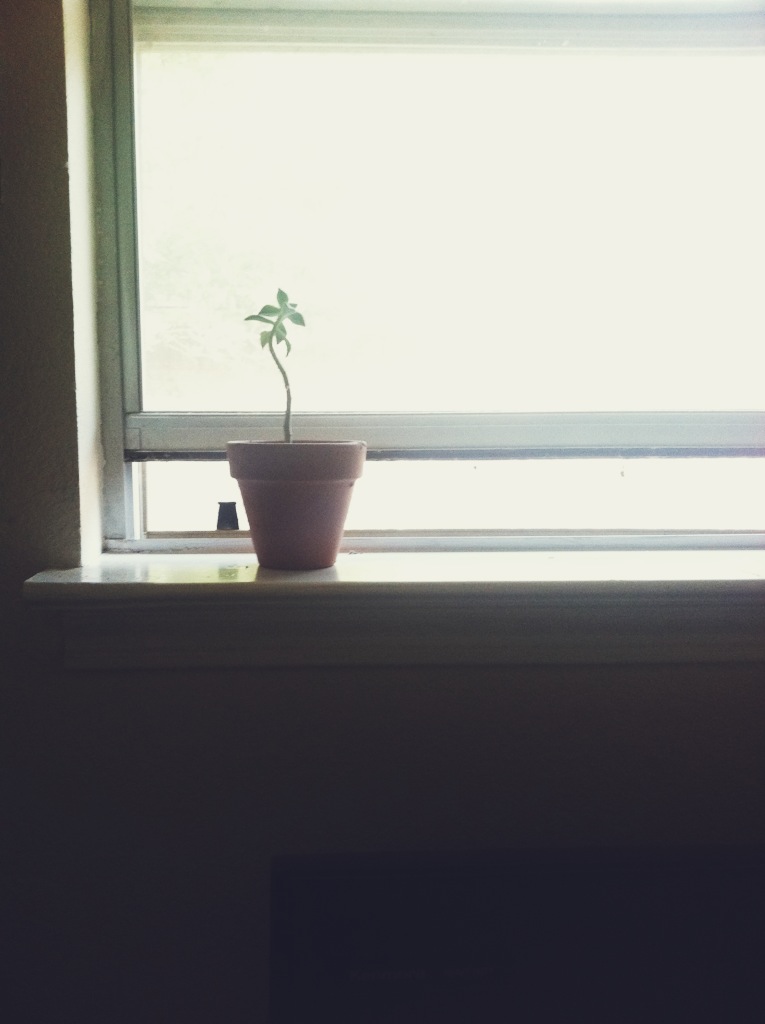It was a poor grasp of theology that led to me to confess in early 2010 I did not believe and could not believe, nor follow, the God I thought I knew. It was one particular line a few months later that turned me right around and into the arms of a Father unlike none I'd ever known: a simple line of truth about Who God Was and Is, and who I am not.
Did I believe before that? Was there a moment of salvation in 2010? Did I need to get rebaptized? These were the questions I asked myself and others eventually asked as well. Questions that needed answers immediately, I thought.

Rob Bell is coming out with a new book, What We Talk About When We Talk About God, and I watched the trailer for it this morning. Guy better brace himself because I don't care if you're the Pope or the President of the United States, the backlash about to unleash on him yet again is gonna sting. Should it sting? Well, that's a question I'm not going to address here, so take your snark and stinky attitude elsewhere—regardless of how much you love or hate him.
Here's what I will say: in early 2006 I got my hands on a copy of Velvet Elvis. First, it was the design of the book that appealed to me—I loved the space, the use of graphic elements in the book, and the smokey blue used throughout it. It felt fresh in my hands. I hadn't read a word and already I knew something beautiful was about to happen to me. I was right. My copy of that book is dog-eared and underlined, scribbled in with pages falling out. Someone was giving me permission to think and to ask questions.
All my life, and especially all my Christian life, asking questions was out of the question.
In Velvet Elvis I was able to wrestle with concepts and thoughts that had never been presented to me as beautiful or mysterious. I thought faith was something you got once and never lost, and could never understand why faith had always been so elusive to me. I was [am] a chronic doubter. Bell's book let me stick my hands in the side of Jesus, poke fingers through God made flesh and flesh made God. 2006 began four years of wrestling for me. What I wrestled with was never completely clear, and I see now it's because I was wrestling with mystery.
I had flesh on my Jesus—He looked like me and all the Christians I'd known my whole life: a bit radical, a bit bland, and a bit pragmatic.
But now I had permission to not understand the fullness of Jesus.
And that saved my life.
. . . . . . . . . . . . .
At the end of those four years, sobbing on my bedroom floor, confessing I did not believe and could not believe, what I came to realize is that I did not believe and could not believe in the God I thought was.
This God who was black and white, clear and clean, four points and a poem, and this God who could not be understood at all, an enigma, a full-on mystery—neither God satisfied the deepest doubts and longings of my soul.
Slowly He began to reveal to me that He was both mystery and proof, solid and spirit, firm truth and full life. He was both/and, not either/or. He was stunning in His characteristics and humbling in His holiness. His beauty was in His immutability and His changelessness was in His triune nature, God in three persons.
. . . . . . . . . . . . .
This is important because heresy will always exist and we must be stalwart to point it out, but we also must let each generation come to a place where they are wrestling with very real, very actual, necessary battles with and for their souls. If we do not fling open the doors to what the world brings at us in some respect, we will raise generations of robotic orators with no grounding to their faith. Can I endorse the content of Velvet Elvis knowing what I know now? No. But can I endorse the wrestling with faith that Velvet Elvis encourages? Yes. Without reservation.
We finished the book of Acts this morning in class and several of us offered reflections on what we learned, how we were challenged or blessed. Here's what Paul taught me more than anything in that book: He was ready in season and out because he knew his audience, he knew the Word, and more than anything he knew his God. He, Pharisee of Pharisees, Hebrew of Hebrews, persecutor of Christians, and mocker of faith, was brought low and shown the beautiful mysterious light of his Savior on Damascus road.
We all will have our moment of beautiful mysterious light, some will have it reading Piper or Edwards, some while reading Keller, Chan, Kierkegaard, or even Bell. Maybe it will take longer than we'd like for someone, or even ourselves, to see a faithful work of service behind us and a hopeful path set before us. Maybe some of us will have to hide out in the house of Judas for a few months or days or weeks.
As for me, I take comfort in this: Every knee will bow, every tongue confess, that He is Lord.
There is no mystery or question about that. It will be full-on, the most spectacularly beautiful culminating moment we could ever imagine.














